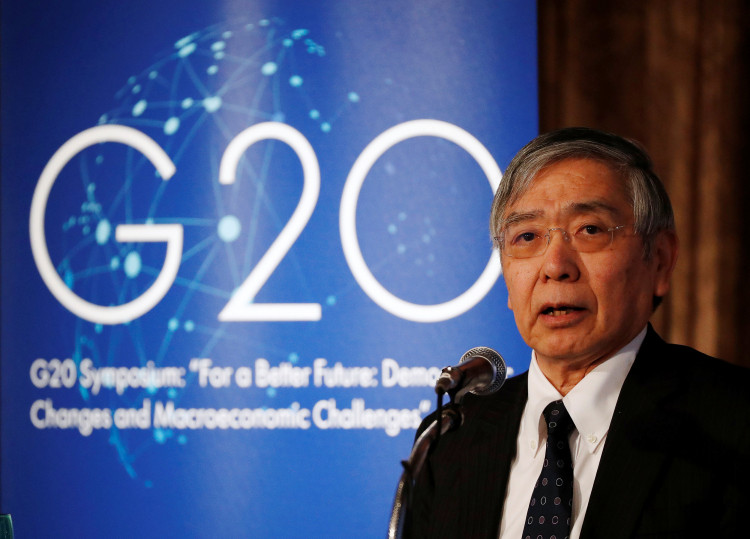The Bank of Japan (BOJ) has added its voice to the growing chorus of financial authorities warning that Trump's trade war is endangering global economic growth.
BOJ governor Haruhiko Kuroda said on Monday the global economic outlook remains highly uncertain. He pointed out there are downside risks due to trade conflict, China's decelerating economy and the stalled Brexit negotiations between the United Kingdom and the European Union (EU).
Kuroda said Group of 20 meetings starting June will discuss current account balances. He also said bilateral trade measures such as those favored by president Donald Trump won't resolve these imbalances. Japan will host the Group of 20 finance ministers and central bankers' meeting from June 8 to 9.
"There is a high degree of uncertainty ... and the downside risks are large," said Kuroda.
"As president of the G20, we will lead policy discussions at the meeting with all the relevant information and appropriate evaluations of global economic conditions."
Kuroda's comments come amid worsening tension between the United States and its main trading partners such as Japan, China, and the EU. Japan and the United States are now negotiating a two-way trade deal.
Economic experts attending the Think 20 (T20) forum in Tokyo ahead of the G20 meeting called for political leaders to adhere to the principles of multilateralism in the midst of anti-globalism and economic uncertainties.
T20, which began Sunday and ends Monday, was attended by more than 400 think tank experts from Japan and abroad. The group meets annually and submits policy recommendations to G20 member countries in 10 subject areas. Among these areas are infrastructure investment, the environment, and global governance.
Many of the speakers delved on Trump's trade war against China and shared their fears that trade disputes will dampen global economic growth
"Although trade negotiations seem to have progressed somewhat, a number of issues need to be resolved," said Kuroda, who spoke on Monday. "Due to the widening range of tariff increases, trade costs may rise, and corporate activity could be subdued due to the reconsideration of production sites and global value chains."
T20 participants noted with dismay about Trump's preference for bilateral over multilateral trade negotiations, a tactic that has disquieted U.S. allies. Trump has withdrawn the U.S. from the Trans-Pacific Partnership framework and threatened to withdraw from the World Trade Organization.
On the other hand, the T20 recommends putting the WTO at the center of a "rules-based trading regime," a move intended to curb the growth of anti-globalist sentiment.





